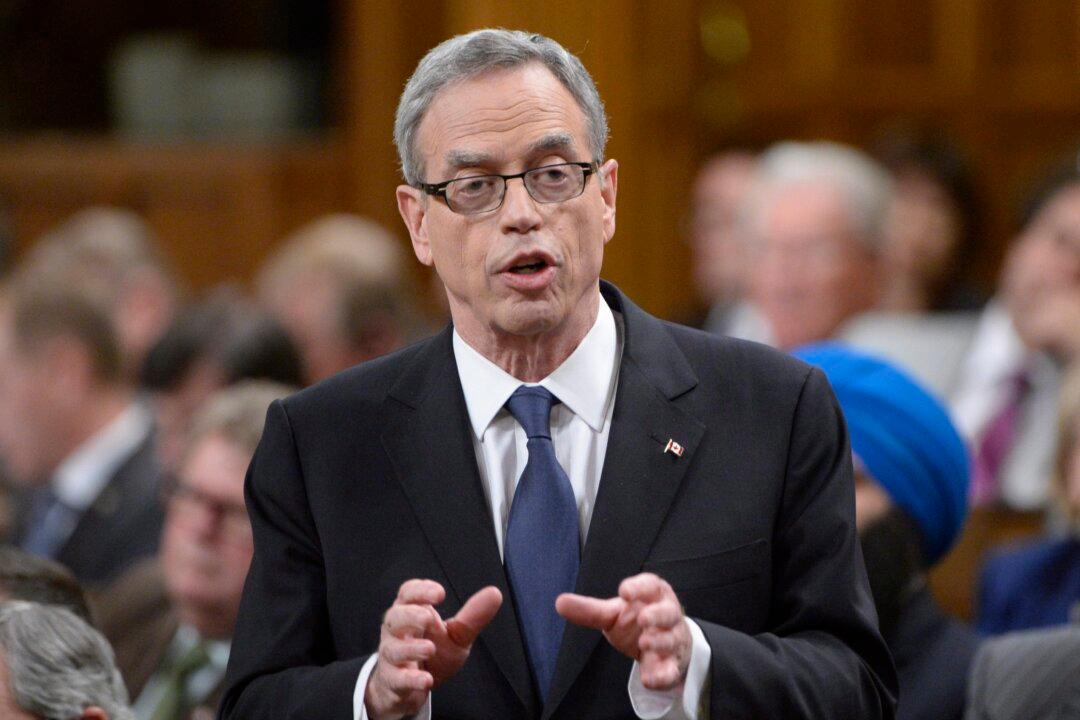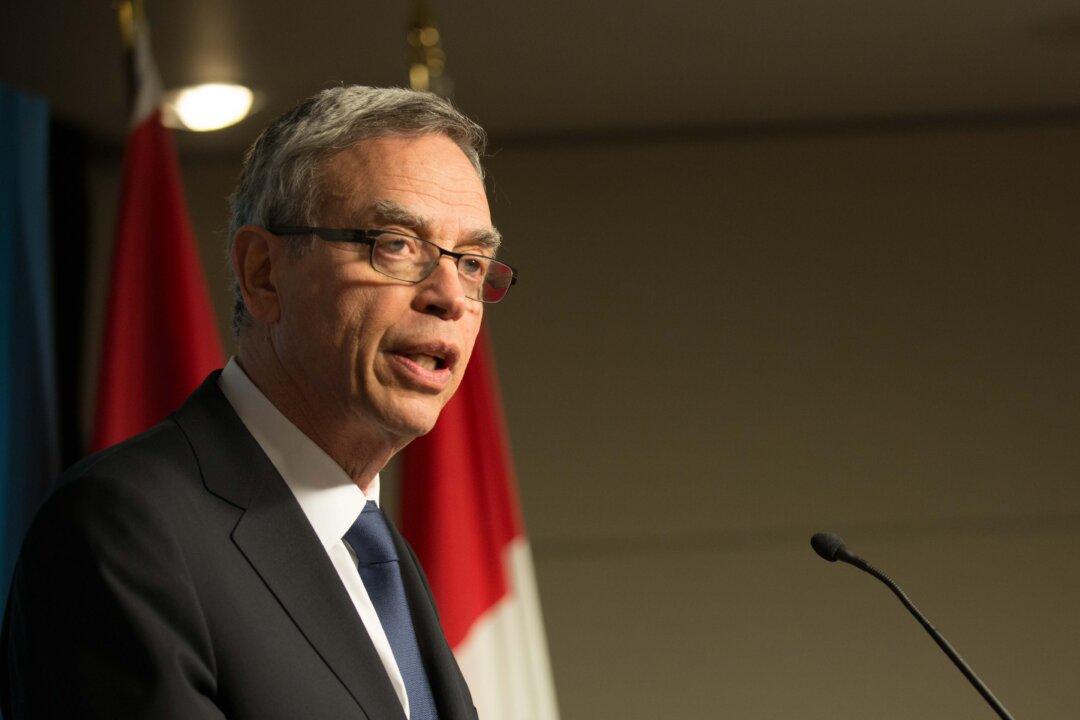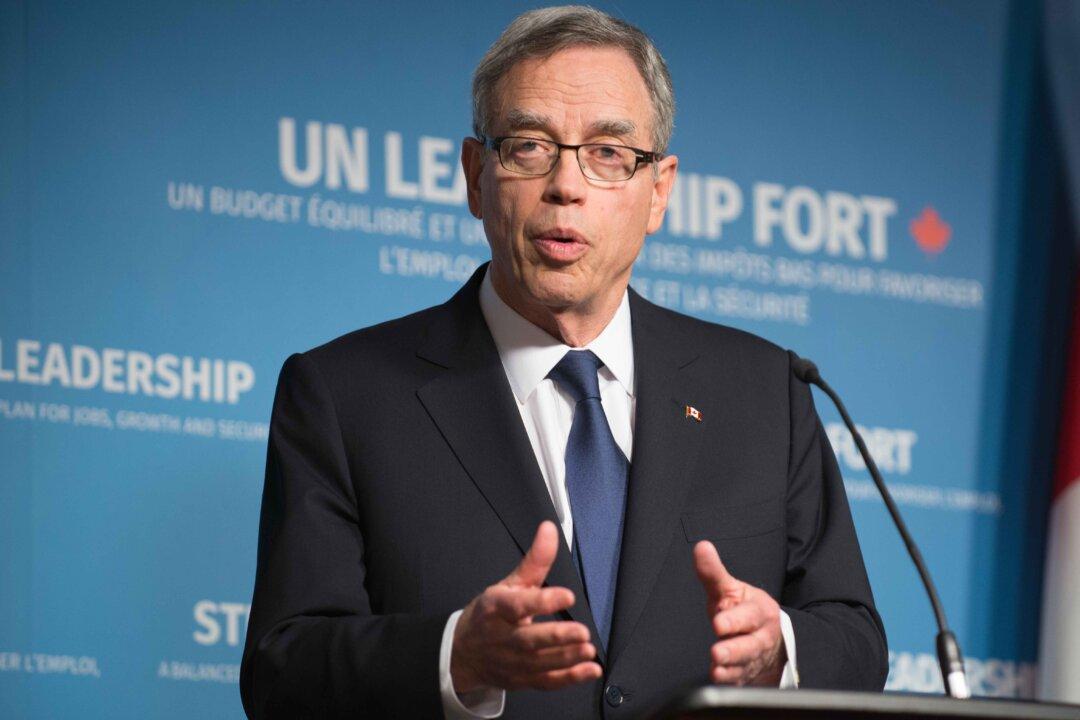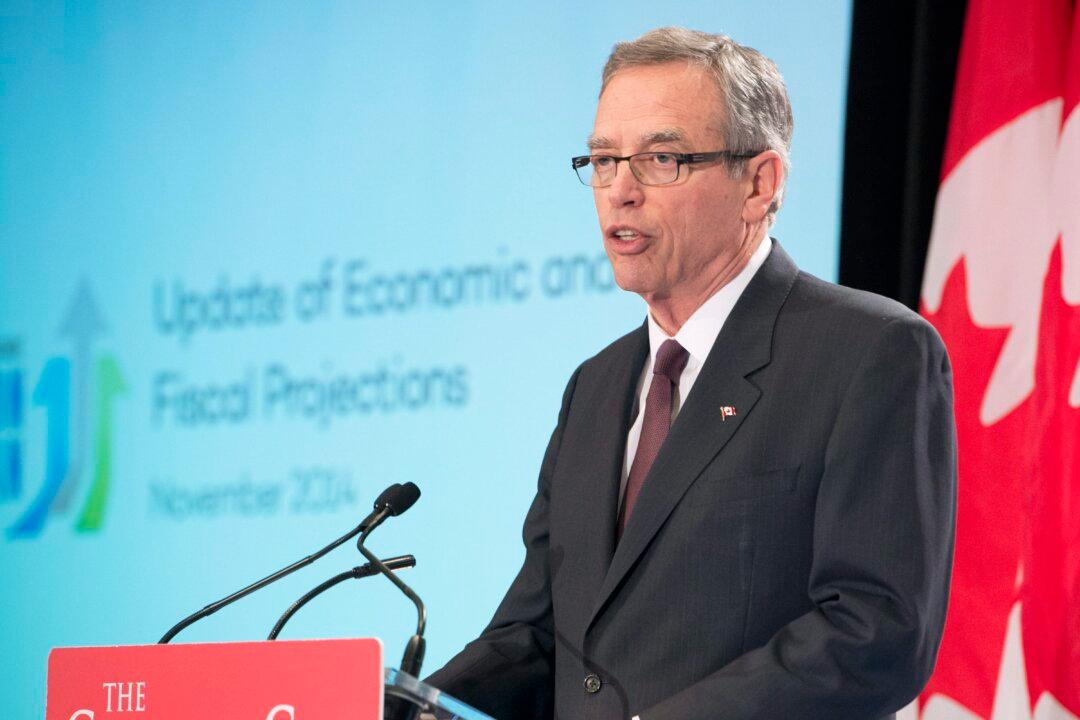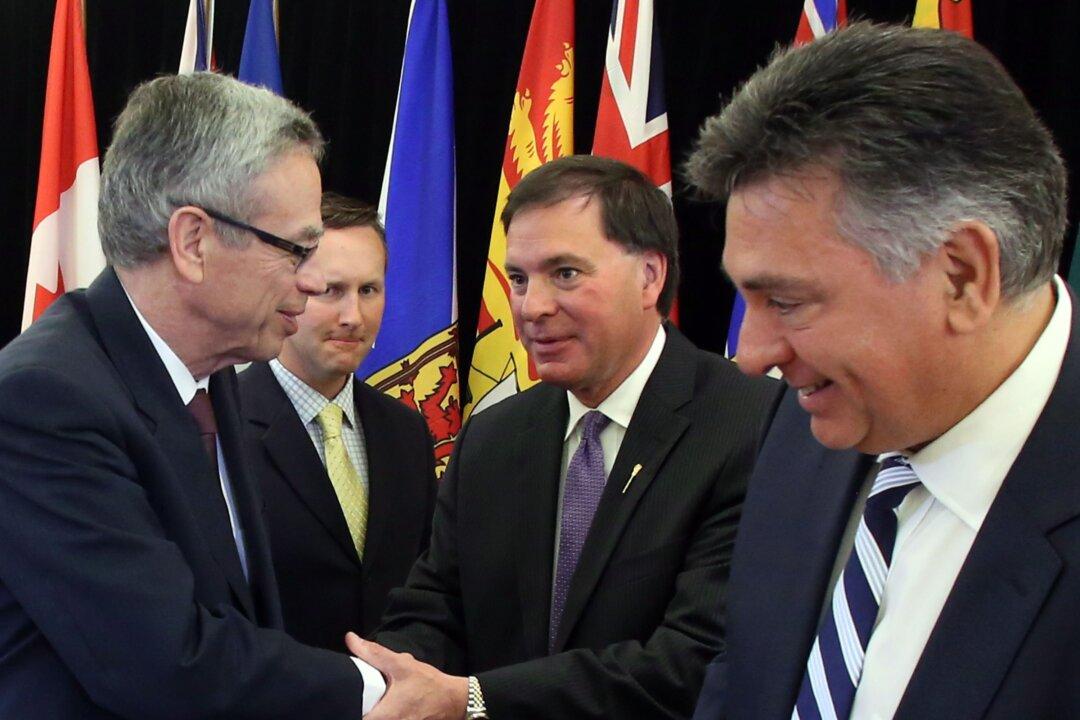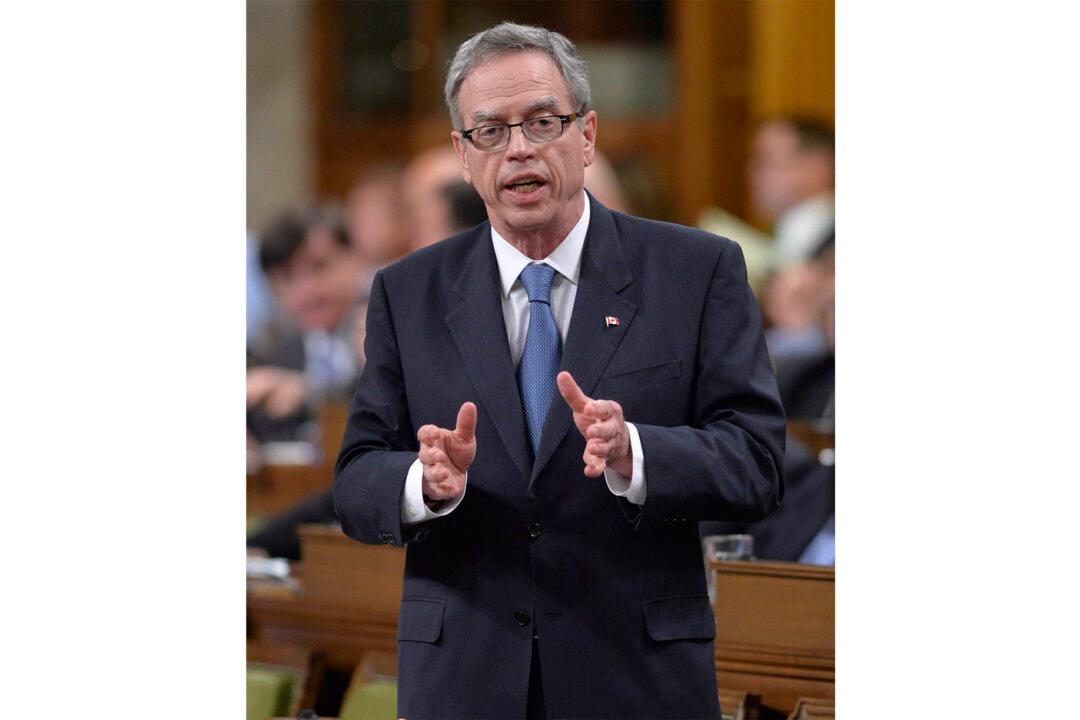Focus
Joe Oliver
LATEST
Small Business Wins Big in Canada’s Budget 2015
Small business owners were big winners in Budget 2015.
|
Balanced Budget Delivered, Now for the Campaign
Finance Minister Joe Oliver rejects his budget is focused on the election campaign, but by keeping their promises the Conservatives are election-ready.
|
Budget 2015: Canada Engineers $1.4 Billion Surplus
Canada is setting an example for prudent fiscal management and Budget 2015 should ensure it continues to have one of the strongest balance sheets among the Group of Seven nations.
|
Canada Heading for Surplus in 2015
Canada is on track to balance the books in 2015 according to the federal government’s Update of Economic and Fiscal Projections.
|
Tax Cuts? Ottawa Must First Consider Falling Oil Prices, Economists Say
Economists are warning that Ottawa will have to weigh the potential risks of plummeting oil prices before it starts doling out large tax cuts.
The federal finance minister has promised the government would live up to its tax-cutting pledges despite a sharp fall in oil prices—thanks to a projected surplus in next year’s budget.
But some economists say Joe Oliver will be forced to pay close attention to the slide since it could well affect Canada’s bottom line.
|
Canada’s Housing ‘Dual Market’ Poses Difficult Policymaker Challenge
Canada’s housing market has cooled off slightly from this summer, but regional disparities make one-size-fits-all approaches to controlling it difficult.
|
National Regulator Soon a Reality, Says Ottawa
Saskatchewan and New Brunswick have announced they will join B.C. and Ontario to form a national body to jointly police securities and capital markets.
|
Oliver Urges Provincial Governments to Keep Battling Deficits
Finance Minister Joe Oliver says he’s concerned that provincial governments and Canada’s global allies will reverse five years of gains since the 2008-2009 recession by taking the pedal off efforts to cut budgetary deficits and debt.
|
Tax Cuts Coming But No Major New Spending Programs, Says Oliver
Finance Minister Joe Oliver says the federal government could have more than $9 billion in surplus to play with next year, but Canadians shouldn’t expect any massive new spending programs.
|
Canada Issues Inaugural Ultra-Long Bond
The Government of Canada has gone ahead and sold 50-year bonds for the first time ever. The Department of Finance has successfully issued $1.5 billion in the ultra-long sector with a yield of 2.96 per cent.
|
Oliver Takes Over From Flaherty, Rickford Moves to Natural Resources
Prime Minister Stephen Harper has named Joe Oliver as his new finance minister and promoted junior minister Greg Rickford.
|
Small Business Wins Big in Canada’s Budget 2015
Small business owners were big winners in Budget 2015.
|
Balanced Budget Delivered, Now for the Campaign
Finance Minister Joe Oliver rejects his budget is focused on the election campaign, but by keeping their promises the Conservatives are election-ready.
|
Budget 2015: Canada Engineers $1.4 Billion Surplus
Canada is setting an example for prudent fiscal management and Budget 2015 should ensure it continues to have one of the strongest balance sheets among the Group of Seven nations.
|
Canada Heading for Surplus in 2015
Canada is on track to balance the books in 2015 according to the federal government’s Update of Economic and Fiscal Projections.
|
Tax Cuts? Ottawa Must First Consider Falling Oil Prices, Economists Say
Economists are warning that Ottawa will have to weigh the potential risks of plummeting oil prices before it starts doling out large tax cuts.
The federal finance minister has promised the government would live up to its tax-cutting pledges despite a sharp fall in oil prices—thanks to a projected surplus in next year’s budget.
But some economists say Joe Oliver will be forced to pay close attention to the slide since it could well affect Canada’s bottom line.
|
Canada’s Housing ‘Dual Market’ Poses Difficult Policymaker Challenge
Canada’s housing market has cooled off slightly from this summer, but regional disparities make one-size-fits-all approaches to controlling it difficult.
|
National Regulator Soon a Reality, Says Ottawa
Saskatchewan and New Brunswick have announced they will join B.C. and Ontario to form a national body to jointly police securities and capital markets.
|
Oliver Urges Provincial Governments to Keep Battling Deficits
Finance Minister Joe Oliver says he’s concerned that provincial governments and Canada’s global allies will reverse five years of gains since the 2008-2009 recession by taking the pedal off efforts to cut budgetary deficits and debt.
|
Tax Cuts Coming But No Major New Spending Programs, Says Oliver
Finance Minister Joe Oliver says the federal government could have more than $9 billion in surplus to play with next year, but Canadians shouldn’t expect any massive new spending programs.
|
Canada Issues Inaugural Ultra-Long Bond
The Government of Canada has gone ahead and sold 50-year bonds for the first time ever. The Department of Finance has successfully issued $1.5 billion in the ultra-long sector with a yield of 2.96 per cent.
|
Oliver Takes Over From Flaherty, Rickford Moves to Natural Resources
Prime Minister Stephen Harper has named Joe Oliver as his new finance minister and promoted junior minister Greg Rickford.
|



